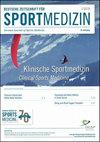德国业余高尔夫球手的补品、止痛药和酒精使用情况
Q3 Health Professions
引用次数: 0
摘要
问题:为了应对越来越大的比赛压力,越来越多的业余运动员开始使用提高成绩的药物。虽然使用膳食补充剂、非甾体抗炎药和酒精不属于“兴奋剂”的范畴,但在体育活动中仍存在风险和副作用。方法:一份专门为本研究开发的在线问卷用于研究高尔夫球手对补品、镇痛药和酒精的消耗。结果:共有877名高尔夫球手(女257人,男619人;1 .多元化的人;年龄:56 M =;SD=15岁)参加调查。调查结果显示,40.1%的高尔夫球手服用补品,46.6%服用止痛剂,40.4%服用酒精。由于参加高尔夫比赛,补品(43.0%)、止痛药(52.1%)和酒精(47.2%)的消费量显著增加。性别与高尔夫比赛中的酒精消费量显著相关(p=0.001);喝酒的男人比女人多。年龄与高尔夫比赛补品的摄入量呈显著负相关(r=- 0.131;P =0.001)和高尔夫比赛中酒精的消耗(r=- 0.238;p = 0.000)。讨论:对于大部分接受调查的高尔夫球手来说,消费的频率令人担忧。因此,迫切需要对高尔夫球手进行教育,让他们了解在体育活动中增加补充剂、止痛药和酒精的摄入所带来的风险,以避免对身体造成损害。本文章由计算机程序翻译,如有差异,请以英文原文为准。
Supplements, analgesics and alcohol use of German amateur golfers
Problem: To cope with the increasing pressure to perform, more and more amateur athletes are turning to performance-enhancing substances. Although the use of dietary supplements, non-steroidal anti-inflammatory drugs and alcohol does not fall into the category of ‘doping’, it nevertheless harbors risks and side effects during sporting activity. Methods: An online questionnaire developed specifically for this study was used to research the consumption of supplements, analgesics, and alcohol among golfers. Results: A total of 877 golfers (257 women, 619 men; 1 diverse person; age: M=56; SD=15 years) participated in the survey. The results of the survey showed that 40.1% of golfers consumed supplements, 46.6% analgesics, and 40.4% alcohol. Dependent on participation in golf tournaments, the consumption of supplements (43.0%), analgesics (52.1%) and alcohol (47.2%) increases significantly. Gender correlates significantly with the consumption of alcohol at golf tournaments (p=0.001); more men consume alcohol than women. Age correlates significantly and negatively with the consumption of supplements at golf tournaments (r=- 0.131; p=0.001) and the consumption of alcohol at golf tournaments (r=- 0.238; p=0.000). Discussion: The frequency of consumption was alarming for a large proportion of the golfers surveyed. Therefore, there is an urgent need to educate golfers about the risks associated with increased consumption of supplements, analgesics, and alcohol in connection with sporting activities to avoid damage to one’s body.
求助全文
通过发布文献求助,成功后即可免费获取论文全文。
去求助
来源期刊

Deutsche Zeitschrift fur Sportmedizin
Medicine-Orthopedics and Sports Medicine
CiteScore
2.00
自引率
0.00%
发文量
30
审稿时长
>12 weeks
期刊介绍:
The Deutsche Zeitschrift fuer Sportmedizin - German Journal of Sports Medicine has been
founded in 1951 and is dedicated to the biomedical science and clinical practice of Sports
Medicine and its border fields which investigate the influence of exercise, physical training
and sports as well as lack of exercise to healthy and sick people of all age-groups, related to
prevention, diagnosis, therapy, rehabilitation and physical training.
Manuscripts which deal with actual scientific and medical findings, new hypotheses, actual
controversies and problems in real life will be published. Possible Topics are physiology
and pathophysiology of exercise, medical and biological findings, the medical therapy of
exercise-related medical problems, epidemiology of sedentary lifestyle and related
disorders, therapy of sports injuries - especially the conservative postoperative treatment
of injuries -, medical training and rehabilitation medicine, as well as special social,
cultural, psychological and special science-related aspects of the entire scientific field.
 求助内容:
求助内容: 应助结果提醒方式:
应助结果提醒方式:


